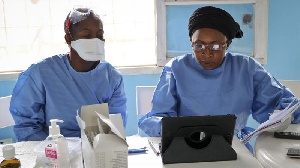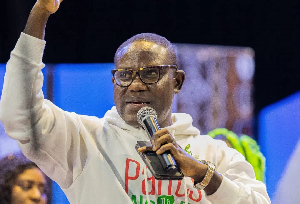Dr Ato Arthur, Head of the Local Government Service (LGS) has called for greater punitive measures against environmental and sanitation infractions in the country to change attitudes.
He said in view of its role in maintaining a well-sanitised country, environmental prosecution must be cardinal for effective management of the menace it poses to all.
Dr. Arthur made the call at the launch of a four-day training programme in Ho organized by the LGS for Environmental Health Prosecutors and Officers from the Volta, Eastern, and Oti Regions.
He noted that environmental prosecution had been effective in the past despite limited powers and resources, and said stakeholders must consider the burden of sanitation-related diseases, and provide prosecutors with teeth to bite.
“Environmental prosecution must be as effective as in the past. In the past, they did not possess the powers and expertise they have today, yet, they inspired fear with their work”, the Head of the LGS said, and called on Local Assemblies to provide the needed support towards an effective prosecutorial mandate.
“There is no doubt about the fact that every Metropolitan, Municipal and District Assembly (MMDAs) had bye-laws that regulate the activities of all the districts. Once these bye-laws are approved by the General Assembly and gazetted, they should as well be enforced.
“It is my hope that the Assemblies will empower the Environmental Health Prosecutors and Officers to deliver that mandate without fear or favour. Often times, officers have been ordered to stop actions initiated to sanction people who have acted contrary to what is desirable in respect of environmental bye-laws,” he said.
Dr Arthur said the over-politicisation of policies continued to affect national progress and appealed to all to “embrace what will move Ghana forward in its developmental agenda.”
He asked the Environmental Health Prosecutors and Officers to work more closely with the Environmental Protection Agency in checking industrial pollution and said the LGS would seek collaboration with key stakeholders to “constantly” equip them with new knowledge and requisite resources.
Mr. Prosper Afenyo, Acting Director of the Volta Regional Coordinating Council said Environmental Health Prosecutors played key a key role in national progress as they helped rake in more Internally Generated Funds, and must therefore consider the training seriously as it helped build capacity to deliver.
The about 80 participants had their knowledge of the legal, policy, and regulatory framework on environmental health and sanitation delivery enriched.
They were also taken through the trial process, and an action plan for strengthening enforcement management in the MMDAs was produced at the end of the workshop.
General News of Friday, 28 May 2021
Source: GNA













